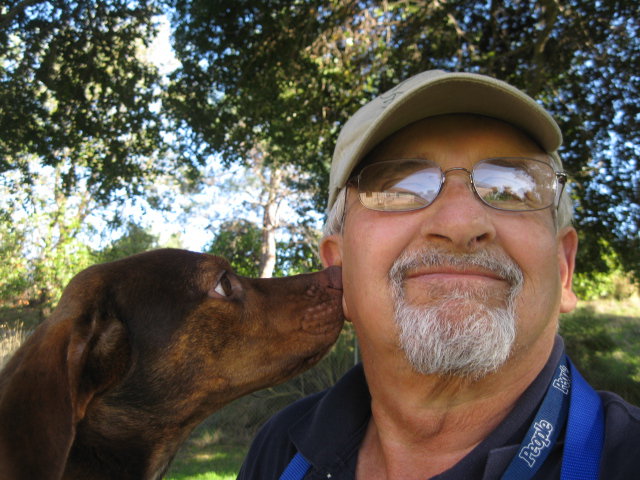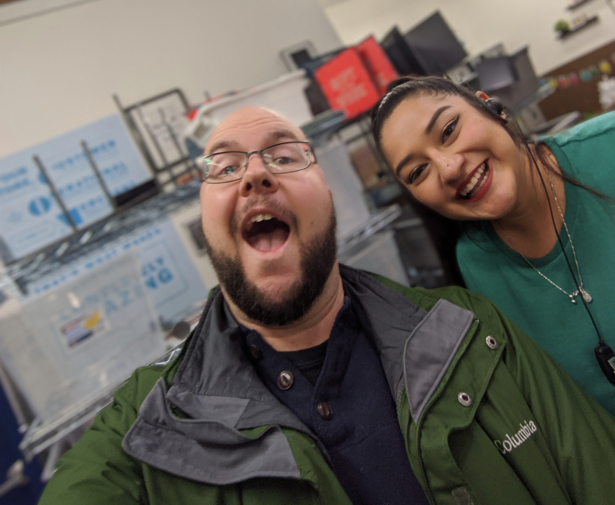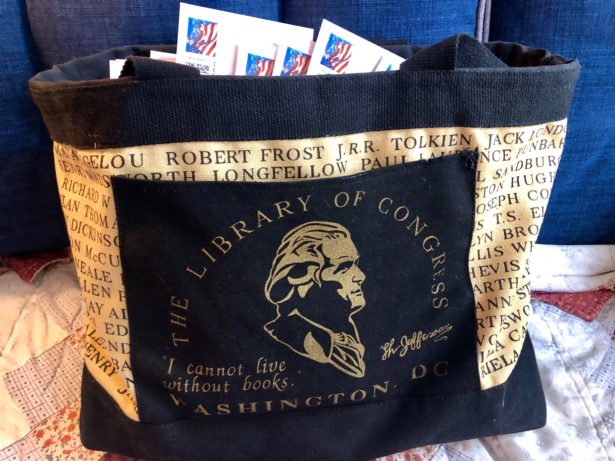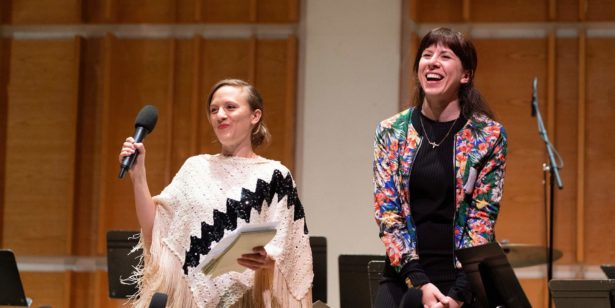
Helping Good Dogs Find Good Homes
Sometimes, a good turn doubles as an act of patriotism
When Neil Lurssen and his wife, Jean, moved from the Washington DC area to Marin County, California, in 1998, they adopted a Labrador retriever that became an important part of their lives. So when that dog passed away in 2007, Lurssen says, “it was an awful experience.”
In part to get over the loss, Lurssen started volunteering at the animal shelter at Marin Humane (then the Marin Humane Society). But what started as a way to get a “dog fix” turned into something more. “It was supposed to be a quick fix until we were ready to get another dog,” Lurssen told Good Turns recently. “What happened was, it kind of grew on me, working up there.” And so he kept on—he’s now been volunteering there for eleven years.
“I started off as a dog walker, which is what they really need all the time,” Lurssen recalls. “They need people to exercise and to keep the dogs in trim form up at the shelter, so I became one of those guys.”
“Working at the shelter gave me a feeling that I was doing something useful. It’s quite a strong motivation for me, to give back something”
“What happens is, eventually you start doing other things,” Lurssen says. “I became over time a mentor for other volunteers. And because I’d had experience as a journalist, this became known, and I started writing things for the shelter. They do this with all their volunteers. People who’ve got skills are encouraged to use them for the shelter.”
Originally from South Africa, Lurssen was sent by a South African newspaper chain to Washington DC in 1982, to cover Capitol Hill and the White House. “It was a very privileged existence for me, and I enjoyed it enormously,” he recalls. He covered Washington for a decade, before starting his own media services company. When he retired, in 1998, he and his family moved to California. “I still do freelance when I can, but I’m now 79, and journalism is really a young man’s game,” he says.
Lurssen is quick to point out that he’s hardly alone in the work he does at the shelter. “There are people up there who do so much more,” he says. Not many have been at it with his commitment, though.
Asked what has kept him at the shelter for so long, he replies: “I think what’s done that is my realization that the things I was doing up there were actually useful to somebody. I also became very friendly with a number of people I met there. We kind of relied on each other, so I didn’t want to let them down. Obviously there’s times when it’s raining and it’s cold and you don’t really want to go out into the open, and you think, ‘What the hell, I’ve done this enough now.’ But then you realize you haven’t done it enough, and you want to keep doing it.”
And an important milestone has leant his work at the shelter additional meaning: “Jean and I became citizens here around 2007 I think it was, and becoming Americans was very, very important to us,” he says. “We saw this country as a country which, while it had a lot of difficulties, at the same time the essential activity was one of pursuing decency, and giving everybody an opportunity. So becoming Americans was an important thing for us.”
“So I just felt that I owed somebody something, and I wasn’t quite sure what it would be. I was too old to volunteer for military service or something like that, and I didn’t have any particular skills anybody wanted. My second language is Afrikaans, and I don’t think that’s of great demand around here. So working at the shelter gave me a feeling that I was doing something useful. It’s quite a strong motivation for me, to give back something. That’s why I do it.”
For an animal shelter, Marin Humane is a sophisticated organization. “It’s more than just a warehouse for dogs,” Lurssen says. “It’s a clinic. They do a lot of spaying there. They bring students down from UC Davis veterinary school, and they have a training and behavioral staff who are leaders in their fields.” All that expertise allows the shelter to take dogs that might be difficult to handle—and all but impossible to adopt—and train them to be more manageable. “If a dog comes in with behavioral issues, we follow their guidelines—and contribute to them ourselves, actually—in order to get the dogs in a more adoptable situation.”
The dogs—and other animals—come from a variety of different sources, Lurssen says. The floods and fires that have plagued California recently have led to a heavy influx of animals. The shelter also takes in animals from other parts of California, from Mexico, and from South Korea, where the Humane Society has rescued more than 1,800 dogs from “meat farms” there. “It’s a wide range of dogs that we work with, and many of them are traumatized or totally unsocialized, so we spend a lot of our time socializing them and working with them to try to make them easy to adopt,” Lurssen says.
“The shelter is really quite an amazing place,” Lurssen says. And—even if there are volunteers who work harder or do more—Lurssen’s is really quite an amazing story. A story that should make any American proud.
Posted March 1, 2019





